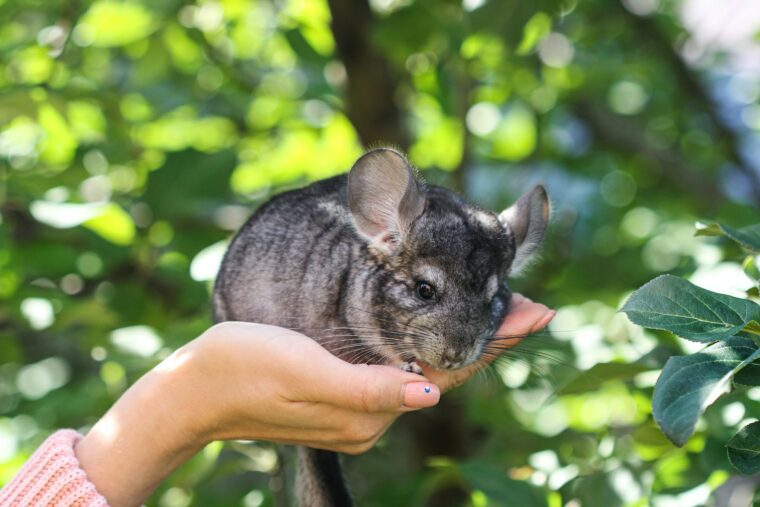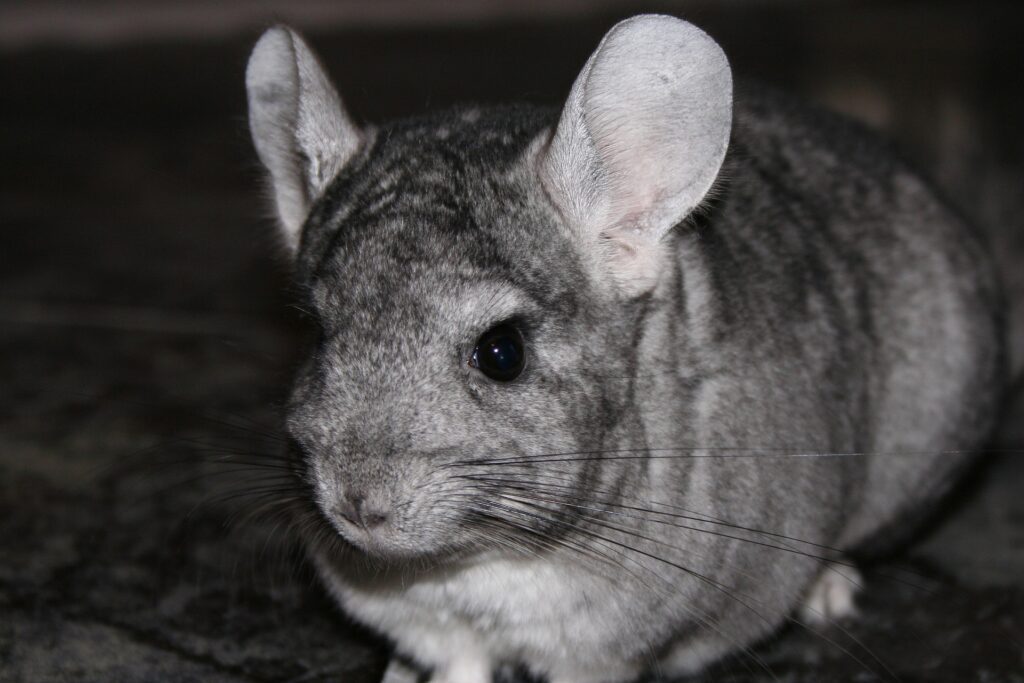What Is a Chinchilla?
Chinchillas are a type of exotic rodent pet that originated in the wild Andes mountains of South America. These rodents are highly social and usually live in colonies of 100 or more in the wild, although they do fine in simple pairs in captivity. Some unique attributes of chinchillas include their soft, dense fur, large ears, muscular back legs and fluffy, long tails.
Other factors that make chinchillas unique:
- Ability to jump up to six feet high
- Nocturnal, meaning being more active at nighttime
- Suited to live in cold climates
How Long Do Chinchillas Live?
When kept in captivity, chinchillas are expected to live up to 20 years. Wild chinchillas, though, may only live up to 10 years.
What Do Chinchillas Eat?
Chinchillas have a unique diet that is full of high-fiber foods, both in captivity and in the wild. Pet chinchillas should be supplied with large amounts of grass-based hay to supplement the fiber they need, but also to allow them the chance to wear down their teeth, which do not stop growing, even in adulthood.

Photo by Tanya Kusova on Unsplash
Like other rodent pets, chinchillas should also be fed pellet-based food that is specialized for their needs. Besides high fiber, chinchillas need Vitamin C, Vitamin E and Vitamin B12. Chinchilla food pellets are usually made with concentrated plant products that are also high in these vitamins.
In the wild, chinchillas are herbivores, and they do not eat any food that is high in sugar or oil. That being said, chinchilla pet owners should be mindful of the treats they give their rodents in addition to their staple hay and pellets. Some chinchilla treats found in pet stores may even contain unhealthy ingredients for chinchillas, so it’s best to only give these pets clean, natural treats, perhaps homemade. Some good treat options include dried rose hips, dried herbs, dried fruit pieces and dried cranberries or raisins.
Do Chinchillas Eat Their Own Droppings?
Although it may concern new pet owners, chinchillas do eat their own droppings. However, this is natural for chinchillas because they have a unique digestive system that must absorb the nutrients from their food twice.
What Makes a Good Chinchilla Habitat?
Chinchillas are extremely active and athletic, so they must have a habitat that’s large enough to support their need for exercise. Chinchilla cages usually include more vertical space than horizontal space so that they can include landings for them to jump and climb on. These cages are also often made of wire or thick metal that they cannot chew through; however, it helps to also include a solid wood floor so that the feet of the chinchillas do not become damaged over time. And, as with other caged rodents, remember that more chinchillas in a group will need more total cage space.
If you’re looking for some chinchilla cage ideas, consider adding toys made of wood, cardboard, pumice or rope. You can buy these toys or make them yourself from leftover materials you may have at home. In any case, be sure to never add plastic toys to a chinchilla cage as they can introduce toxic chemicals to a chinchilla’s digestive system.
A dust bath should also be kept in a chinchilla’s cage at all times since chinchillas must take daily “baths” to keep their fur in good condition.
What Temperature Do Chinchillas Like?
Chinchillas are unique in that they prefer a cold environment similar to that of their home in the Andes mountains. In captivity, chinchillas can tolerate a room or cage temperature of 64-68 degrees Fahrenheit. If the room you plan to keep these rodents in is slightly warmer, you may be able to cool your chinchilla cage with a small chilling unit.
Are Chinchillas Good Pets?
Chinchillas have good temperaments and are generally easy to care for when given the right living conditions and food. However, they do have floating ribs that can break easily and should not be handled frequently, so they are not necessarily good pets for young children. For older children and adults who can learn to handle these pets carefully though, they are great nocturnal companions.


